Assa Matusse doesn’t want to be put in a box, but if she must be put in one, let it be one with several rhythms, like those of afrofusion.
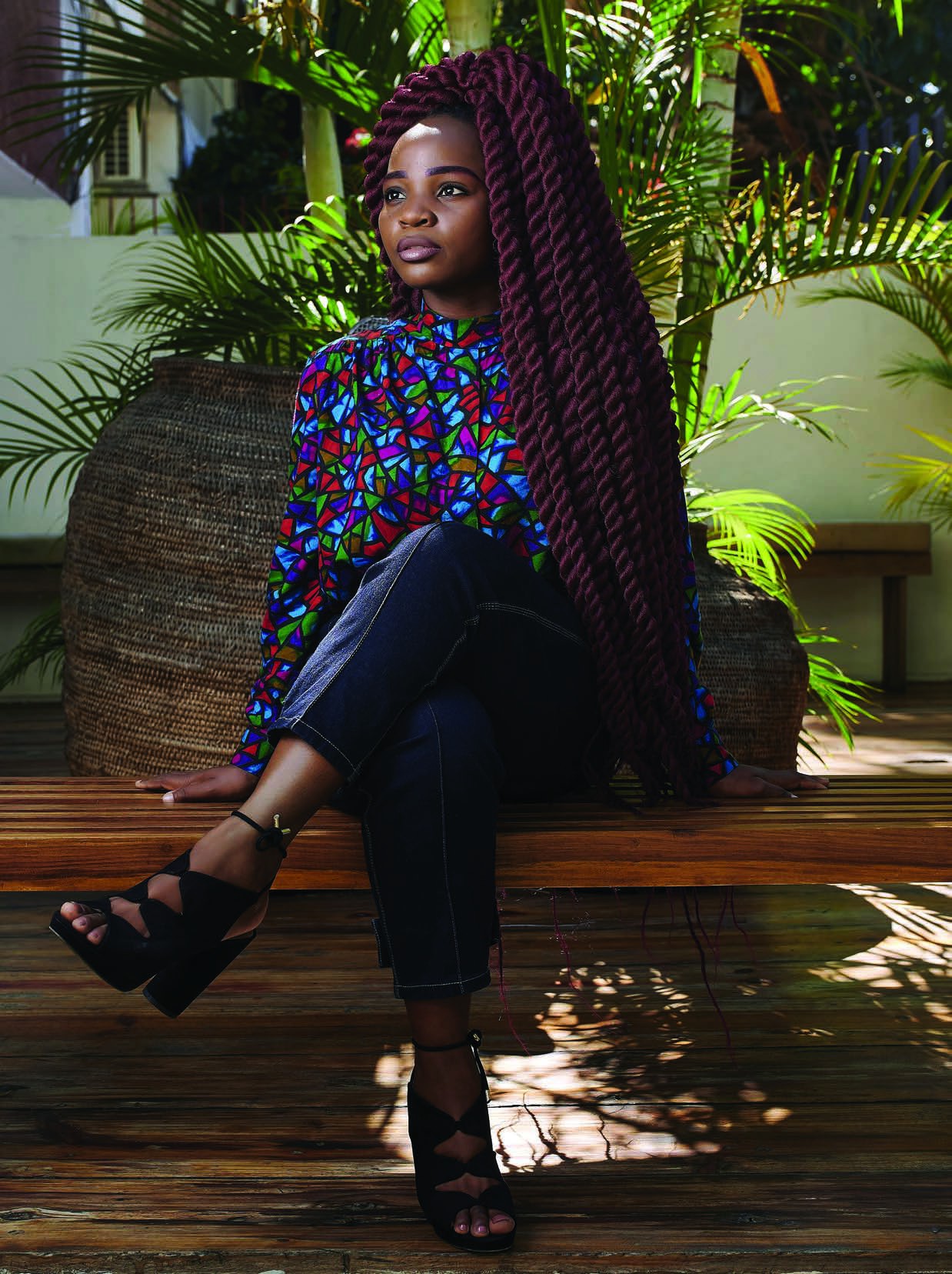
Assa Matusse doesn’t want to be put in a box, but if she must be put in one, let it be one with several rhythms, like those of afrofusion. The voice, hoarse and masculine, makes the difference in the music she makes. It is a breath of fresh air in Afrojazz, a rhythm that defines + Eu, her debut album, but which is far from defining the artist.
YOU WON THE REVELATION AWARD AT NGOMA MOZAMBIQUE 2013. DID THIS AWARD ADD PRES- SURE TO FUTURE ALBUMS?
It placed some responsibility. After winning an award, one must continue to make it stand. It wasn’t bad pressure. It was pressure to continue to do the job well. Nothing that would put me against the wall.
THE AWARD WAS BEFORE RELEASING THE ALBUM. DID IT TURN IT INTO AN INPUT?
I already had the plan to have the album. When I competed for the award, I had only recorded the song Estranho, with which I won the Ngoma. In fact, we took advantage of the fact that there was the Ngoma to test whether we were on the right track. But the award wasn’t the passport to the album.We already had the plan.
+ EU SUGGESTS AN ASSA WHO WANTS TO MAKE IT OUTSIDE THE OPINIONS OF OTHERS, DISREGARDING QUICK AND EASY FAME. WAS THIS IDEA ON PURPOSE?
The album was a way of imposing me, above all, looking at my history. The opportunities aren’t where I was born. But I went after them. It’s what makes me walk with my head held high and the album title followed this position. Fame was never my goal.
THE FIRST ALBUM ESTABLISHED YOU AS AN AFROJAZZ VOICE. BUT WE KNOW YOU DON’T LIKE BEING LABELED THAT. WHY?
I made Afrojazz, but today it isn’t the style that I most identify with. I don’t like being the voice of Afrojazz, because it’s like being put in a box. I don’t just make Afrojazz, I make music. There is a lot of fusion in the music I make, a mix of styles, the afro is always there, because I am African, so I would accept afrofusion more.
THE VOCAL TONE IS WHAT DRAWS THE MOST ATTENTION WHEN WE LISTEN TO YOU. HOW DOES THIS VOICE REACH YOU?
Friends and family laugh a lot about my hoarse voice, especially when talking. Some say I have a man’s voice. My mom jokes that I look like a drunk. In the countries where I’ve been, my voice drew the attention of people, who wanted to know where it came from. It’s what sets me apart, my not-so-secret weapon, the most attractive thing I have.
YOU SAID THE OTHER DAY THAT YOU HAD TROUBLE WRITING ABOUT LOVE, BUT THERE ARE SOME SONGS ON THE ALBUM. WHERE DOES THIS AWKWARDNESS COME FROM?
I started very early to take this music thing very seriously. But in my family, when you’re 18, you’re still a child. I always thought my father would ask what do I know about love. For someone who wasn’t allowed to dance, imagine writing lyrics about love, talking about love. A religious education also contributed to this constraint. The three love songs on the album were not written by me. They were written by another composer. But I still felt awkward singing them.
WE SAW YOU ON THE STAGE OF THE FRANCO-MOZAMBICAN CUL- TURAL CENTRE, IN WHAT WAS YOUR FIRST LIVE CONCERT AFTER COVID-19 CLOSED US IN OUR HOMES. HOW WAS THE EXPERIENCE?
I missed hearing and feeling the connection with the audience, to hear applause and screams of euphoria. It was exciting, even though the number was reduced due to preventive measures. It was a histor- ic night, which marked the restart of our lives, the awakening of hope for the art world. But I also felt hesitancy on the part of the public to join the shows, not only because of the pandemic, but also because they were no longer used to going to concerts.
Text: Elton Pila
Photo: Jay Garrido
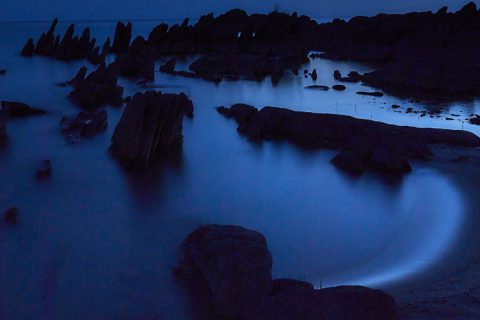


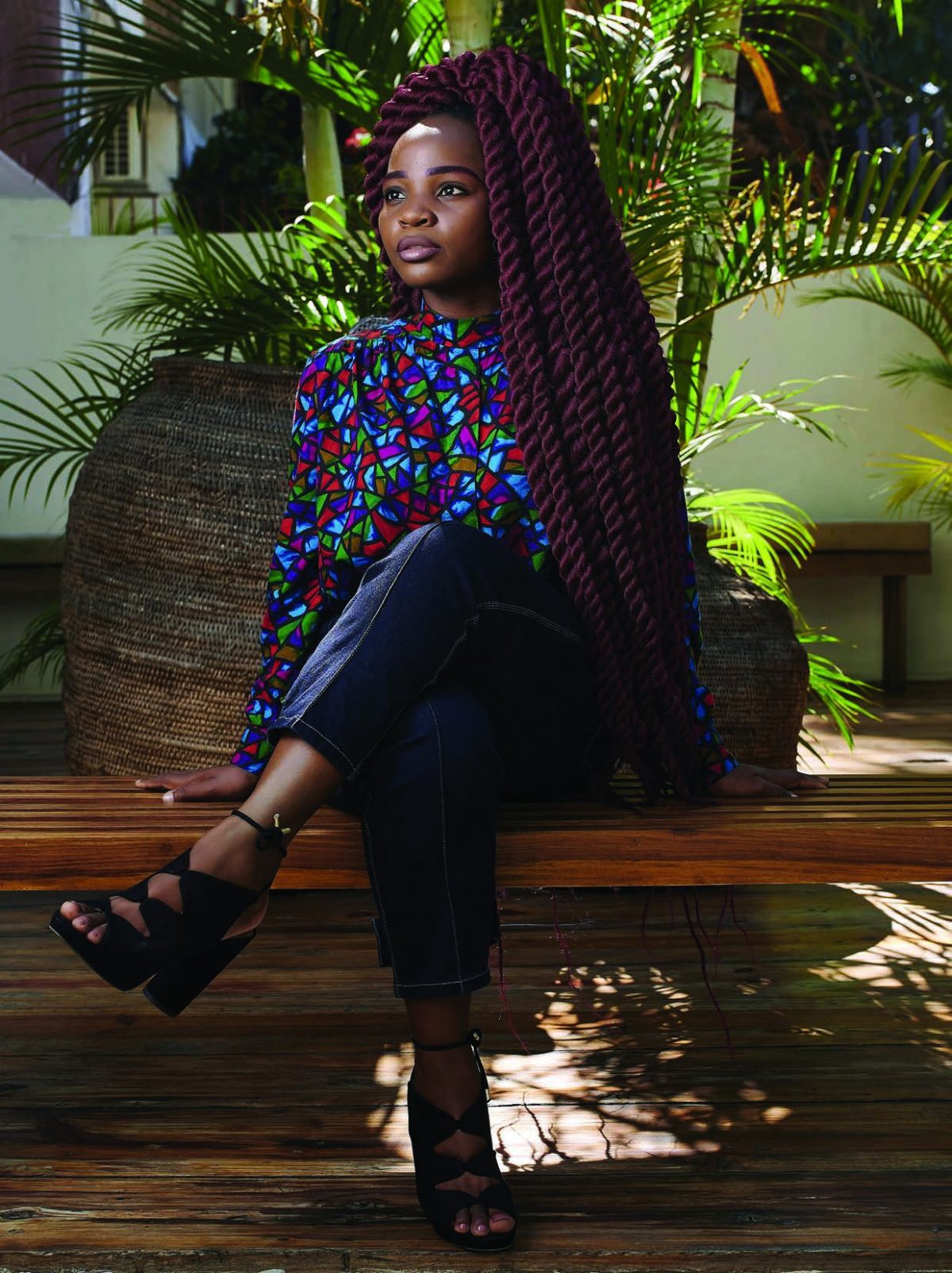
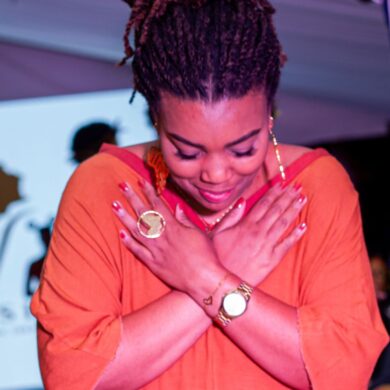
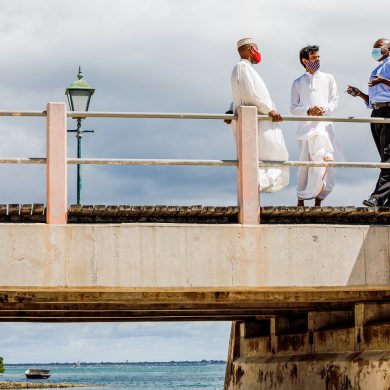
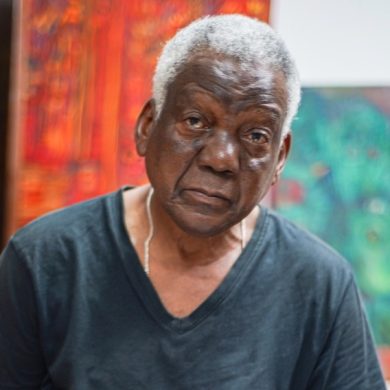
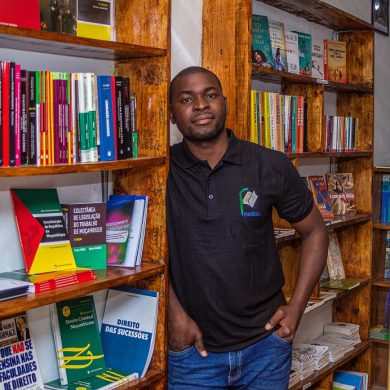
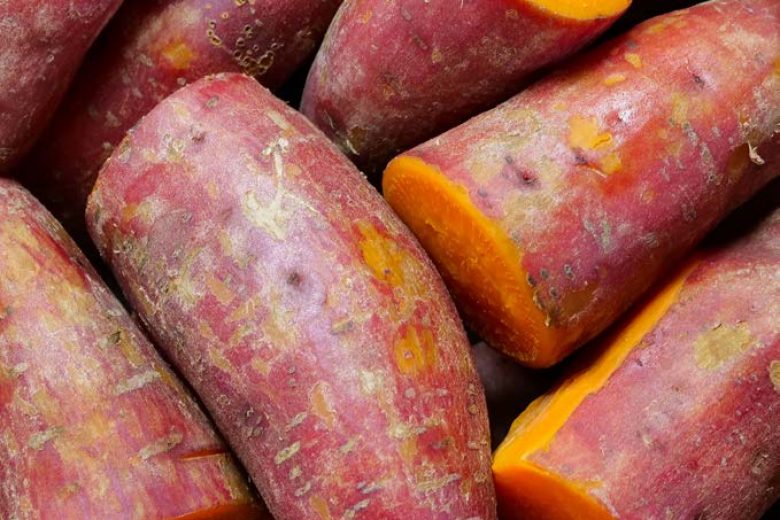
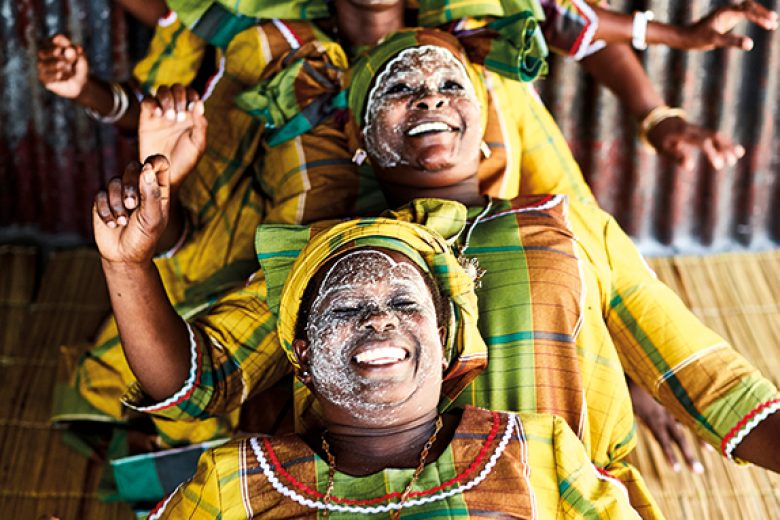
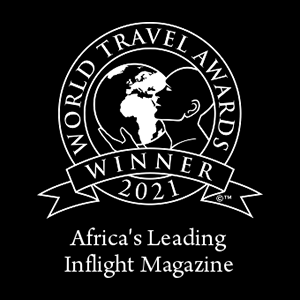









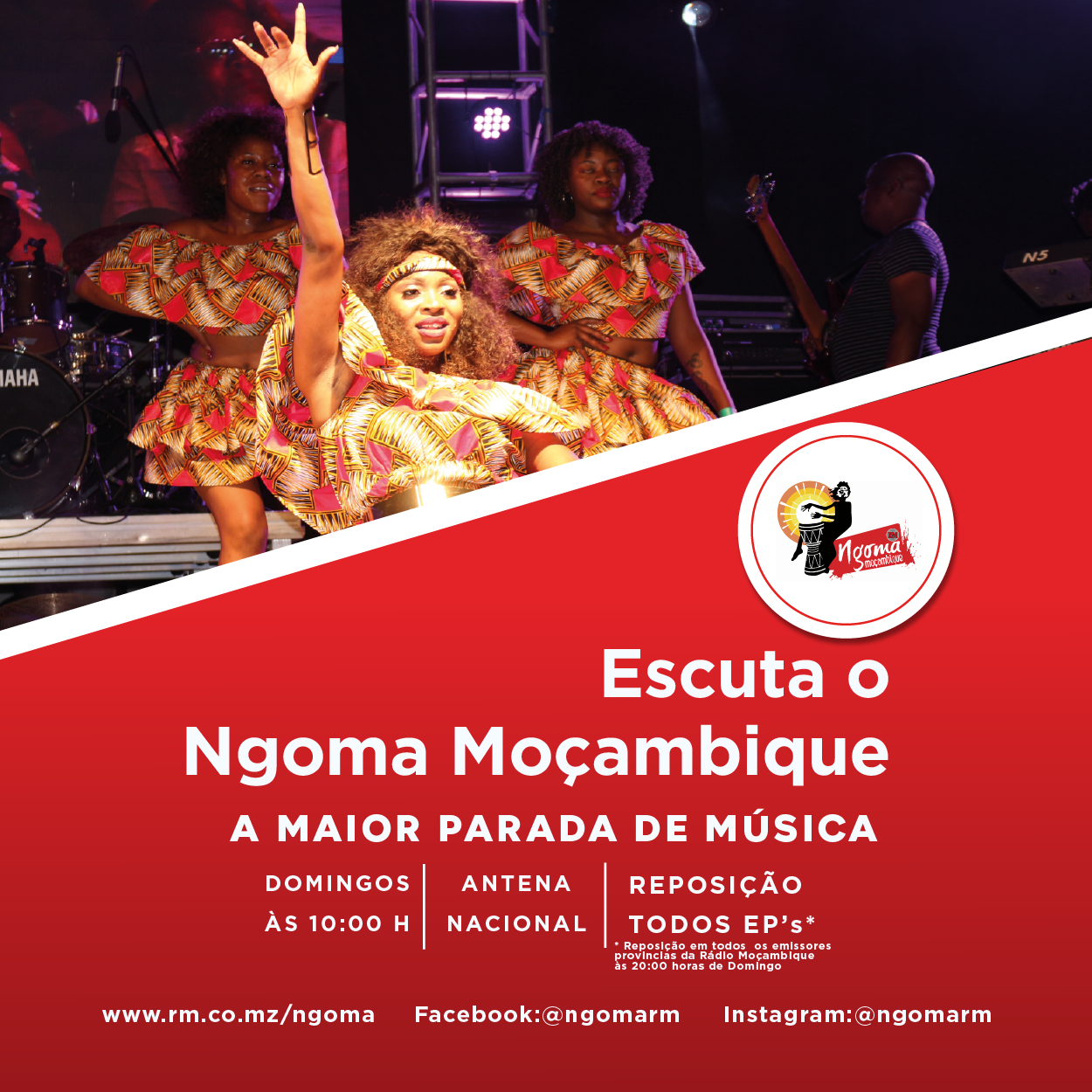
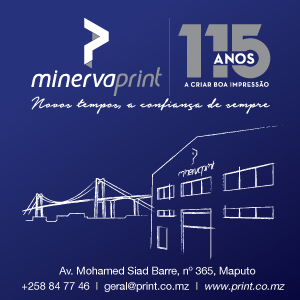





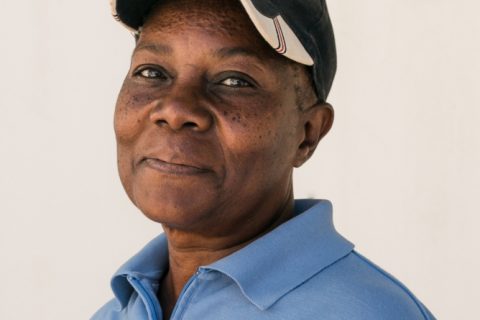
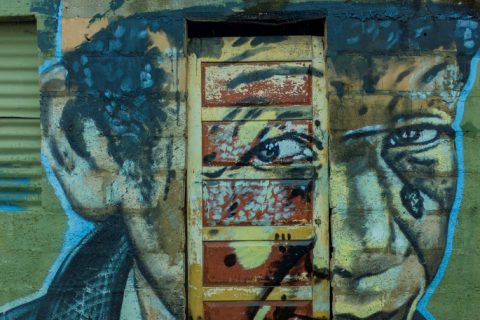
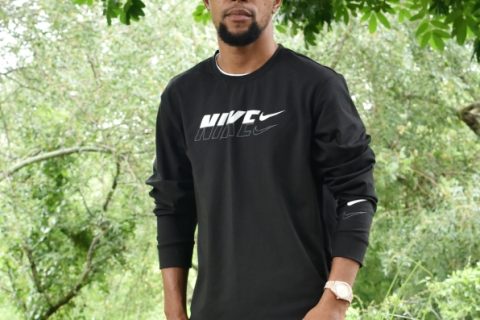
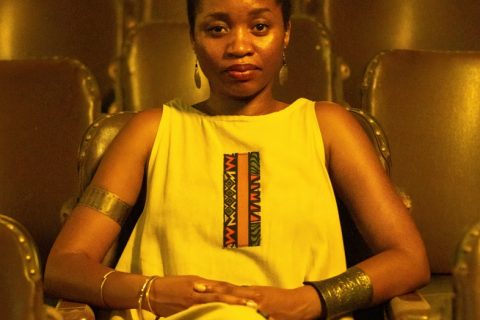
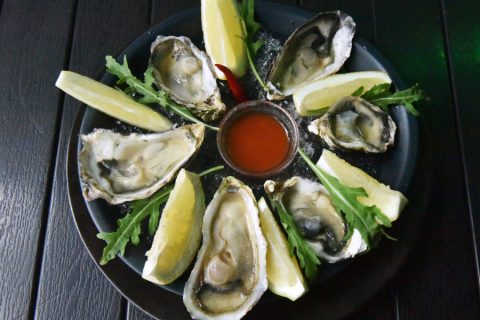
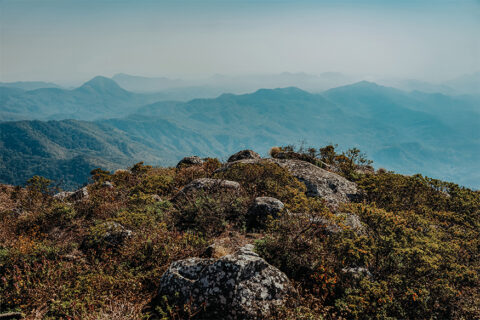


0 Comments